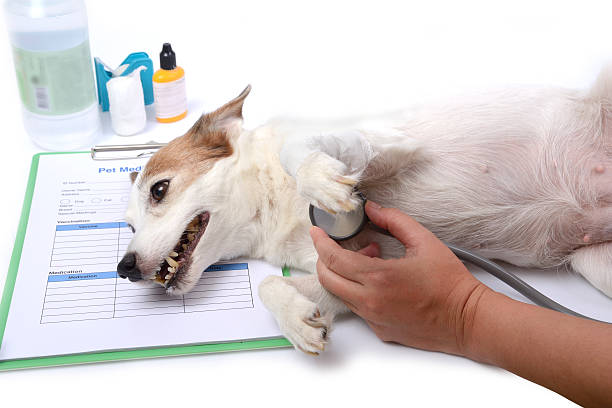Ensuring your pet’s health and happiness requires a proactive approach encompassing proper nutrition, regular exercise, routine veterinary care, and more. By paying attention to these core aspects, you can help your furry companion lead a long, vibrant, and joyful life. Here’s a comprehensive guide to keeping your pet in optimal condition.
1. Balanced Nutrition
Overview: Proper nutrition is fundamental to your pet’s overall health. A well-rounded diet supports their growth, energy levels, and well-being.
Key Tips:
- Choose Quality Food: Opt for pet food with high-quality ingredients, where meat is often the primary ingredient. Avoid foods with excessive fillers and artificial additives.
- Follow Feeding Guidelines: Adhere to recommended portion sizes and feeding schedules based on your pet’s age, size, and activity level.
- Specialized Diets: Adjust their diet based on specific health needs, such as age, allergies, or medical conditions. Consult your vet for personalized advice.
Impact: A balanced diet ensures your pet receives essential nutrients, supporting their physical health and energy levels.
2. Regular Exercise
Overview: Exercise is vital for maintaining your pet’s physical and mental health. It helps manage weight, reduces boredom, and strengthens muscles and joints.
Key Tips:
- Daily Activity: Engage your pet in daily physical activities suited to their breed and age. For dogs, this may include walks, playtime, or running; for cats, interactive toys or climbing structures.
- Variety and Enrichment: Introduce new activities and toys to keep your pet engaged and mentally stimulated. Puzzle toys, training exercises, and social interactions can enhance their well-being.
Impact: Regular exercise supports a healthy weight, improves mood, and prevents behavioral issues.
3. Routine Veterinary Care
Overview: Regular checkups with a veterinarian are crucial for monitoring your pet’s health and preventing diseases.
Key Tips:
- Schedule Regular Exams: Take your pet for annual or bi-annual veterinary visits to check for any health issues and receive vaccinations.
- Dental Care: Schedule dental checkups and cleanings to prevent oral health problems, such as tooth decay or gum disease.
- Parasite Prevention: Keep up with vaccinations and preventative treatments for parasites like fleas, ticks, and worms.
Impact: Regular veterinary care helps detect health problems early and ensures your pet remains up-to-date on vaccinations and preventative treatments.
4. Grooming and Hygiene
Overview: Regular grooming maintains your pet’s coat and skin health and helps prevent various health issues.
Key Tips:
- Brushing: Brush your pet’s coat regularly to remove loose hair, prevent matting, and reduce shedding. The frequency will depend on their coat type.
- Bathing: Bathe your pet as needed, using pet-specific shampoos to avoid skin irritation. Overbathing can strip natural oils, so follow guidelines for your pet’s breed.
- Nail Trimming and Ear Cleaning: Trim your pet’s nails regularly to prevent overgrowth and discomfort. Clean their ears as needed to prevent infections.
Impact: Proper grooming enhances your pet’s comfort, prevents health issues, and keeps them looking their best.
5. Mental Stimulation
Overview: Mental enrichment is essential for your pet’s overall well-being, reducing boredom and preventing behavioral problems.
Key Tips:
- Interactive Toys: Provide toys that stimulate your pet’s mind, such as puzzle feeders, treat-dispensing toys, or toys that encourage problem-solving.
- Training and Socialization: Engage in training sessions and social interactions to keep your pet mentally sharp and well-behaved. Positive reinforcement training can also strengthen your bond with your pet.
Impact: Mental stimulation keeps your pet engaged, reduces stress and anxiety, and supports their cognitive health.
6. Hydration
Overview: Adequate hydration is essential for your pet’s health. Water supports digestion, nutrient absorption, and overall bodily functions.
Key Tips:
- Fresh Water: Ensure your pet has access to fresh, clean water at all times. Change the water daily and clean the bowl to prevent bacteria buildup.
- Monitor Intake: Observe your pet’s water consumption. Significant changes in drinking habits can indicate health issues and should be addressed with your vet.
Impact: Proper hydration supports bodily functions and helps prevent issues related to dehydration.
7. Weight Management
Overview: Maintaining a healthy weight is crucial for your pet’s health and longevity. Obesity can lead to various health problems, including diabetes, joint issues, and heart disease.
Key Tips:
- Balanced Diet and Portion Control: Follow feeding guidelines and avoid overfeeding. Monitor your pet’s weight and adjust their diet as needed.
- Regular Exercise: Ensure your pet gets sufficient physical activity to support weight management and overall health.
Impact: Maintaining a healthy weight prevents obesity-related health issues and promotes overall well-being.
8. Safety and Comfort
Overview: Creating a safe and comfortable environment is essential for your pet’s physical and emotional health.
Key Tips:
- Safe Environment: Ensure your home is pet-proofed, with hazards like toxic plants, chemicals, and choking hazards kept out of reach.
- Comfortable Living Space: Provide a cozy and safe space for your pet to rest and relax. Comfortable bedding and a designated area for them to retreat to can enhance their sense of security.
Impact: A safe and comfortable environment supports your pet’s overall well-being and happiness.
Conclusion
Keeping your furry companion thriving and happy involves a holistic approach to their health and well-being. By focusing on balanced nutrition, regular exercise, routine veterinary care, grooming, mental stimulation, hydration, weight management, and safety, you can ensure that your pet leads a long, healthy, and joyful life. Paying attention to these core aspects of pet care helps build a strong foundation for a lifetime of health and happiness with your beloved companion.



